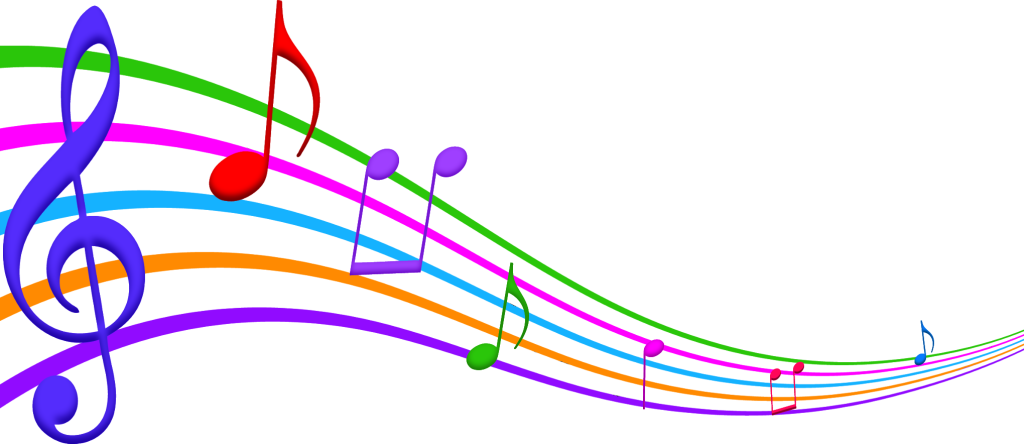Why Music Theory is Essential for Every Aspiring Musician
While many people enjoy listening to music, those who aspire to a music career in this captivating industry know there’s much more beneath the surface. This deeper understanding is achieved through the study of Music Theory and its widespread application, serving as the cornerstone of any Musician’s journey.
In this article, we will discover the enthralling world of Music Theory. We will answer the question, “What is Music Theory?” and delve into its essential components, highlighting how it plays an important role in shaping a successful music career through the top Music Production Courses in Delhi.
What is Music Theory?
Music Theory is the study of music practices and possibilities. You can think of it as learning English grammar. Just as grammar helps you construct sentences that are both coherent and cohesive, Music Theory enables you to blend notes, chords, and rhythms together easily.
Read Also: India’s Top 10 Legendary Music Composers You Should Know
And it’s not just for enthusiasts who are interested in classical music; it’s for every Musician who has completed their Music Production Course, whether it’s performing guitar strumming, playing the piano, or mixing beats as a DJ.
Music Theory incorporates a wide range of topics. It begins with pitch, rhythm, and harmony, among other basic principles, and extends into modulation, counterpoint, and form, among other highly complex principles.
Grasping these concepts allows you to understand the musical bigger picture of how this industry works. This is similar to stepping back to take an entire forest glimpse rather than focusing on single trees.
The music theory origin can be traced back to the ancient civilizations of Greece, which developed scales and modes systems. During the Middle Ages, music theory was further refined with the introduction of musical notation.
Throughout history, Pythagoras, RD Burman, and Shankar-Ehsaan-Loy, among other notable Musicians, have significantly contributed to the evolution of Music Theory.
Read Also: How to Balance Music Studies with Your Daily Life: Time Management Tips
The Essential Components of Music Theory
These essential components are useful as they will help you gain insights into how notes, scales, harmony, and rhythm come to create the music we love together. Here are the essential Music Theory components:
Notes and Scales: Music starts with organizing sounds into notes, which follow scales and a specific type of pattern. The diatonic scale, the most common scale, comprises seven notes that are arranged in a particular order. Understanding scales is essential for melodies and harmony.
Harmony: Harmony involves combining different musical elements to create a pleasant and unified sound. It adds composition depth and richness and is crucial in most music genres.
Rhythm: Rhythm is the note’s timing and duration and rests in music. Musicians use time signatures and tempo to create various rhythmic patterns, giving the music its characteristic feel, whether it’s lively, sombre, or contemplative.
Chords: Chords are note groups that are played simultaneously, forming the harmony’s backbones. They can convey different emotions based on their arrangement, helping Musicians build the piece’s harmonic structure.
Notation: Musicians use notation systems (sheet music or tablature) to perform visual music communication. Understanding musical notation in reading and written form is a foundational skill for anyone pursuing a music career.
Form: The musical composition form refers to its structure and organization, which can vary widely. It includes verse-chorus form and sonata-allegro form, among other elements.
Dynamics and Expression: Dynamics refer to loudness and intensity variation, while expression includes techniques like vibrato, glissando, and articulation, adding nuance and performance feel.
Read Also: Top 10 DJs in India Revolutionizing the Music Industry in 2025

Importance of Music Theory for Musicians
Music Theory can transform you from a wandering minstrel into a maestro in music. Here are some key points on the importance of Music Theory for Musicians after completing their Music Production Courses in Delhi:
Songwriting: Music Theory helps you craft catchy and harmonically-rich songs. Knowing scales, chords, and intervals allows you to build solid foundations and add unexpected composition twists.
Performance: With Music Theory, you can navigate chord changes effortlessly during improvisational jam sessions. It helps you create solos that are mesmerizing and adapt on the fly, ensuring you come off as a seasoned pro.
Arranging and Orchestrating: Music Theory is crucial for music arranging and orchestrating. Understanding how to write for different instruments and their ranges makes your arrangements sound lush and professional.
DJing: Advanced Music Theory techniques can elevate your DJ sets. Harmonically track mixing in compatible keys creates seamless transitions that keep the dance floor packed.
Practice Routine: Incorporation of Music Theory into your practice routine can be a huge plus. By breaking down complex concepts into bite-sized modules, you can make learning theory less intimidating and more accessible.
Dynamic Toolkit: Music Theory is not just academic; it’s a toolkit that enhances every aspect of your musical journey. From songwriting and arranging to improvisation and performance, it transforms you into a bona fide artist.
Misconceptions About Music Theory
There are several Music Theory myths that can deter aspiring Musicians. Here are some key points for these misconceptions clarification:
1. Theory and Practice: One common misconception is that Music Theory is purely practical music, academic and disconnected. In reality, theory and practice are intertwined closely, guiding performance and composition in a better way.
2. Creativity: Another myth is that Music Theory stifles creativity. While it provides guidelines, many groundbreaking Musicians have used theory as a springboard for innovation.
3. Foundation: Music Theory is the musical world’s backbone, playing a pivotal role in shaping the careers of Musicians. It empowers them to communicate profoundly, create, and get a better audience connection.
4. Career Enhancement: Whether you dream of composing symphonies, improvising jazz solos, or producing hits, a strong Music Theory foundation is invaluable. It helps you understand and create music with more depth and better expression.
Read Also: Professional Courses After 12th Arts: Top Options, Eligibility, and Career

Why You Must Learn Music Theory
Learning Music Theory offers numerous benefits that can significantly enhance your musical journey as a Musician after completing the Music Production Course. Here’s why you must learn Music Theory:
1. Understanding Music: Music theory is the fundamental building block of musical composition. It helps you understand the workings of the music, enhancing your music growth. Contrary to popular belief, it doesn’t restrict creativity but instead provides an innovative framework.
2. Improvisation: Knowing Music Theory enhances your ability to improvise. It provides a foundation that helps you understand what works harmonically, allowing you to create spontaneous and cohesive music.
3. Accurate Playing: A solid grasp of Music Theory helps you play more accurately. Understanding different styles of music and historical contexts allows you to interpret and perform the composer’s intended pieces.
4. Broadening Knowledge: Music Theory knowledge exposes you to a wide range of pieces and composers. This approach helps to broaden your repertoire in music and introduces you to diverse levels of styles and techniques, enriching your experience in music.
5. Transcribing Music: Music Theory makes music transcribing easier. It helps you translate sounds into written notes and vice versa, a valuable Musician skill, especially for those interested in composing or songwriting.
6. Sight Reading: Music Theory improves your written notes-matching abilities with tones at a glance. This skill is crucial for sight reading, allowing you to accurately play new pieces.
7 Streamlined Learning: Learning Music Theory can streamline your practice and learning process. It saves time by helping you recognize patterns, understand chord progressions, and make your practice sessions more effective.
Read Also: 10 Essential Skills to Become a Music Producer
How to Start Learning Music Theory
Starting your Music Theory journey can feel overwhelming, but with the right approach, it can be both rewarding and enjoyable for the Musician. Here are some steps to help you get started:
1. Take a Music Course: Enrol in an online Music Course or join a local music school like AAFT. Structured courses offer a comprehensive curriculum and expert guidance.
2. Use Online Resources: Utilize the wealth of resources that are available online. These include videos, tutorials, and interactive exercises to learn at your own pace.
3. Practice Regularly: Practicing regularly is highly crucial. Apply what you learn by music through piece analysis, composing, and improvising to reinforce your knowledge.
4. Work with a Teacher: A qualified music teacher from reputed institutes like AAFT can provide personalized instruction and feedback, helping you grow professionally more quickly.
5. Join a Community: Engage with other Musicians through forums, social media groups, or local ensembles. This can provide support, motivation, and practical experience.
Wrapping Up
Getting on your Music Theory journey can transform your career in music. This provides you with the tools to innovate and excel further. Whether you’re composing, performing, or arranging, a solid Music Theory foundation is invaluable.
It not only enhances your technical skills but also deepens your understanding of all types of music. Furthermore, you can easily express yourself in a more creative and confident fashion.
For more information or if you are looking to enroll in any of our Music Production Courses in Delhi, connect with our AAFT team today or comment below with any questions about these Music Courses











